Search
Search Results
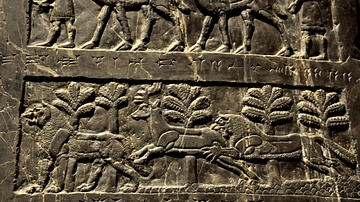
Image
The Black Obelisk of Shalmaneser III, side A, 4th register
Lions and a stag from Marduk-apla-usur the Suhean, probably for the Royal hunting park. Suhi is an area on the middle Euphrates, between modern Syria and Iraq. From Nimrud, (ancient Kalhu), near the building of Shalmaneser, neo-Assyrian era...

Image
The Black Obelisk of Shalmaneser III, side A, 5th register
Tribute from Qarparunda the Patinean: silver, gold, tin, "fast" bronze, ivory (tusks), and ebony. Patina is modern Antakya, south of Turkey. From Nimrud, (ancient Kalhu), near the building of Shalmaneser, neo-Assyrian era, 827 BCE, Mesopotamia...
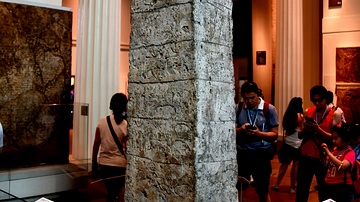
Image
The White Obelisk of Ashurnasirpal I
This limestone stela was excavated in 1853 CE. The incomplete inscription names Ashurnasirpal, probably Ashurnasirpal I (reigned 1049-1031 BCE). He is shown in his chariot fighting (at the top of the stela) and hunting (at the bottom), and...
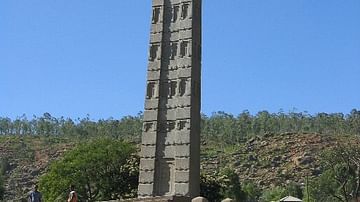
Image
Royal Obelisk, Axum
A stone monolithic obelisk marking the tomb of King Ezanas of the kingdom of Axum (aka Aksum, modern Ethiopia), c. 400 CE. The carvings imitate the architectural features of dry-stone and timber housing.

Video
Bernini Obelisk - Ancient Rome Live
The Bernini Obelisk (also known as the "Minervio" or "the Elephant and Obelisk") is a sculpture from Rome. The obelisk was originally from Sais, Egypt and was brought to Rome by Emperor Diocletian (r. 284-305 CE). The elephant was a later...

Video
Quirinal Obelisk - Ancient Rome Live
The Quirinal obelisk is one of the many obelisks that the Romans transported to Rome, subsequently repurposed in the papal period in a new location. Specifically, the Quirinal obelisk is one of two obelisks brought from Egypt, designated...

Definition
Ancient Egyptian Architecture
Ancient Egyptian architecture is often associated closely with the pyramids of Giza but was actually quite diverse, taking a number of forms in the construction of administrative buildings, temples, tombs, palaces, and the private homes of...

Article
Ancient Egyptian Science & Technology
The great temples and monuments of ancient Egypt continue to fascinate and amaze people in the modern day. The sheer size and scope of structures like the Great Pyramid at Giza or the Temple of Amun at Karnak or the Colossi of Memnon are...
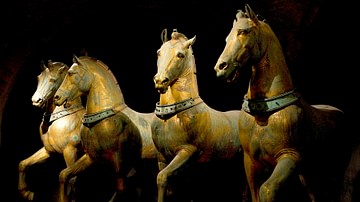
Article
The Hippodrome of Constantinople
The Hippodrome of Constantinople was an arena used for chariot racing throughout the Byzantine period. First built during the reign of Roman emperor Septimius Severus in the early 3rd century CE, the structure was made more grandiose by emperor...
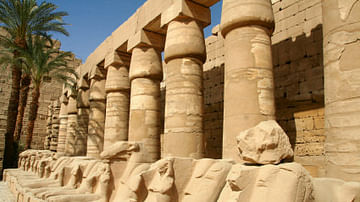
Definition
Karnak
Karnak is the modern-day name for the ancient site of the Temple of Amun at Thebes, Egypt. The Egyptians called the site Nesut-Towi, "Throne of the Two Lands", Ipet-Iset, "The Finest of Seats" as well as Ipt-Swt, "Selected Spot" also given...